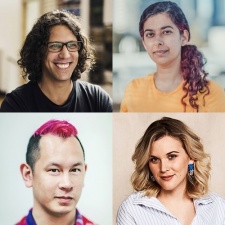Despite housing Florence creator Mountains and Armello crafts-folk League of Geeks, the first thing we come to on our tour of Melbourne-based indie workspace The Arcade - as part of our trip to Melbourne International Games Week- is a rustic coffee machine.
It’s by no coincidence either, as the coffee maker was among the first amenities to be brought into the communal hub. The reason why is that it represents the idea that wisdom isn’t shared in meeting rooms, but rather in social settings over a cup of coffee.
There’s a good reason for promoting the idea of togetherness too as it was sorely needed back in 2008 when the global financial crisis ravaged the Australian games industry.
Before that, the country enjoyed a prosperous development scene stacked with major publisher-owned studios and independent work-for-hire outfits, from Pandemic and Krome to Team Bondi and 2K Australia.
Australia’s unique appeal back then was that it was cheap to outsource work to, but the global crash meant that money and investment vanished as swiftly as the dollar crashed in America.
Despite Australia’s currency not being too greatly affected, an over-reliance on foreign markets left the country without a local industry to fall back on.
The crash
“The 2008 crash had a big impact on the Australian industry because it pretty much shut down every major studio we had here,” Defiant Development founder Morgan Jaffit (pictured main, top left), who once worked for Pandemic, tells PocketGamer.Biz.
“This was before open platforms, and indie dev was really a thing, so all we had locally was a handful of local developers (people like Krome and Halfbrick) and a bunch of US-owned studios (THQ, EA/Pandemic, Sega, 2K, etcetera).
“In two years, all of them shut down, which didn't leave much in the way of opportunities for Australian games developers.
“Fortunately, this coincided with the rise of mobile and indie dev, which opened up a new door for some of those developers.
“Even so, only in the last couple of years have we seen the number of people working in the industry reach the pre-financial crisis numbers.”
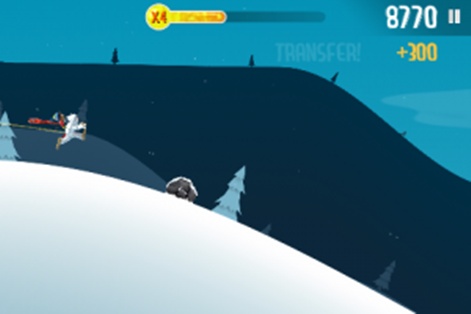
While things were financially bleak, the industry found itself with an influx of talent ready to create. As Jaffit describes, things were difficult but exciting.
“Everything vanished quickly, which meant that the new wave of development also happened quickly,” he explains.
“The local community was small, but there were fresh and exciting things happening everywhere you looked.
“Fruit Ninja, Flight Control, AntiChamber, Hand of Fate and Armello – there were ongoing waves of interesting titles coming out.”
System reboot
Fast-forward to today and the Australian industry has continued in the same stride, boasting an array of indie darlings from Hipster Whale’s Crossy Road to Team Cherry’s Hollow Knight.
It is perhaps fair to say, then, that Australia found an industry and identity through an indie spirit of innovation.
“The industry is completely different in Australia post-GFC, there is almost no triple-A representation, rather we are seeing a significant rise in ‘double-A’ studios and continuing growth in our local sector,” Games Developers' Association of Australia interim-CEO Melissa Lancuba (pictured main, top right) tells us.
“The local scene is thriving, with successes such as Florence, The Gardens Between and Yonder: The Cloud Catcher Chronicles, though it is not without the issues faced by all creative industries.”
Everything vanished quickly, which meant that the new wave of development also happened quickly.Morgan Jaffit
Lancuba goes on to tell us that a spirit of creativity alongside a sense of comradery was key in re-establishing the dev scene and that increasing recognition from abroad has been encouraging in pushing forward.
"I would put the industry’s recovery down to the generosity, sense of community, a willingness to share information and genuine collaboration by everyone involved in video game production in Australia," says Lancuba.
“We are receiving global recognition for our locally produced games and are punching well above our weight; our local industry is very adaptable and continues to push boundaries and thrive in a sometimes hostile environment."
Jaffit adds: “There are a huge number of talented people working here, they're working closely with each other, they're making good projects, and some of those projects are making enough money to build real businesses. Real businesses that own their IP and benefit the Australian community.
“There are places in the world with bigger industries, but there's nowhere that’s better, in my opinion.”
Reflections
Of course, no one is resting on their laurels yet. A mood of reflection is notable in this year’s Games Connect Asia Pacific event, which ran to the central theme 'The Walls We've Built Ourselves', with various talks focusing on inclusivity and finding your market.
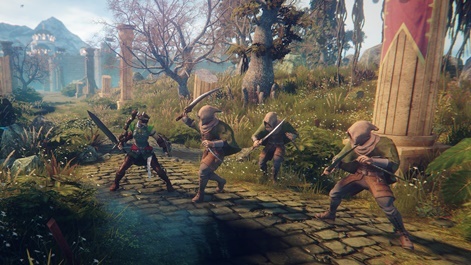
“‘The Walls We’ve Built Ourselves’ was the brainchild of the outgoing CEO of the GDAA, Tony Reed, in response to his perception that the local industry was in danger of being too inward-looking, constraining innovation and creative risk,” Lancuba explains.
“Tony’s intention for the theme was to explore the sector’s successes and failures post-GFC regarding the necessary change, and how the sector must push harder to remain relevant in an evolving global landscape.
“The general mindset of the industry right now is growth and sustainability. How can we take the successes we’ve had and begin to scale? How do we successfully fund our second, third projects?”
Community
Interpretation of the theme was also opened up to others as part of the event. During the closing keynote, Mountains founder Ken Wong (pictured main, bottom left) follows on from Jaffit on stage and delved into what it means to him.
“I feel like it’s a very Australian theme. In that, we as Australians need to, and should, take a good and hard look at ourselves and how we got here and acknowledge that Australia was built on stolen land," Wong explains to us afterwards.
"That’s part of our history and will always be a part of the Australian identity.
“So in line with that, the walls we built ourselves is asking us to examine what structures we have built up and how those are keeping some people out, keeping some people separated and questioning what we should be doing about that.”
We as Australians need to, and should, take a good and hard look at ourselves and how we got here.Ken Wong
Wong also explains that the communal nature of working in the Arcade helps imbue that spirit by allowing different studios to look out for each other, despite it needing constant vigilance.
“I think it works well in multiple ways; it encourages us to ask for help from each other, whether that’s borrowing equipment, asking for skills or just asking for advice,” he says.
“There’s also some accountability there, there’s this idea that if anyone is screwing up then we’re going to gently poke at each other and say ‘hey, you know that you’re not alone and some of us have solved those problems’ or if we haven’t, ‘let’s try and figure it out together’.
“The Arcade is wonderful for that, but I’m always trying to be mindful of who is outside of it. Are we reaching out to other teams in the Melbourne and Australian community and making sure that nobody is isolated?”
Mentorship
As Wong hints at, equality and diversity among Australia’s landscape as a whole is a common challenge for the industry.
Another one of the industry’s bright lights to tackle the theme of "The Walls We Built Ourselves" was mentorship programme Working Lunch CEO Ally McLean (pictured main, bottom right), who is also a product director at games developer 3RD Sense and was one of the creators behind PC Indie title Rumu.
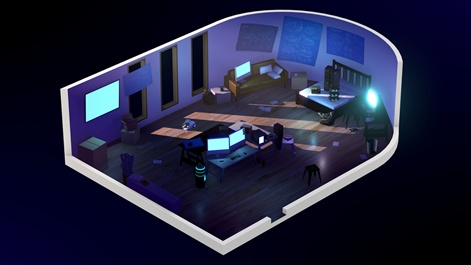
For McLean, if the Australian industry is to evolve and survive, then a diverse range of people will need the same opportunities as others to help shape the industry.
“I mean; talking to each other, sharing knowledge and supporting each other – that’s the secret,” says McLean.
“Whether it’s through mentorship or other means, breaking down the walls of how we communicate with each other and the way that we share knowledge.
“We have to support each other if we’re going to make it through this readjustment period, we have to reach out, we have to share the knowledge that we keep to ourselves and the things that scare us. We have to connect.”
We have to share the knowledge that we keep to ourselves and the things that scare us. We have to connect.Ally McLean
To act upon that need, McLean tells us that Working Lunch will not only be extending to more territories next year but beyond women to non-binary people too.
“We know we have something that works, and now it’s a matter of getting it to the people who need it the most,” McLean explains.
“So a big part of that is we’re shifting from being a women-focused spaced to being a women and non-binary space - working with Queerly Represent Me to bring consultation and make sure that non-binary people have a seat at our organisation. Not just from a mentor and mentee perspective but a management perspective.
“So we have that going on and we also have our expansion going on. Our first port of call was to expand to cities that don’t see as much support.
“That’s why Adelaide and Wellington are our next steps because there is a lot of talent there and need there, but there aren't a lot of support networks.”
Support across the board
Another challenge for Australia’s industry is an uneven landscape regarding support for games developers. Help comes from local governments, but each operate on a different wavelength.
“Different states have different levels of support, but we've seen a growing awareness from all the states and territories of the value of games development and the support that comes along with that,” says Jaffit.
“Queensland, in particular, is currently doing exciting things on the funding side and I'm a part of their board which means I've been able to have a voice at the table when it comes to supporting that growth.”
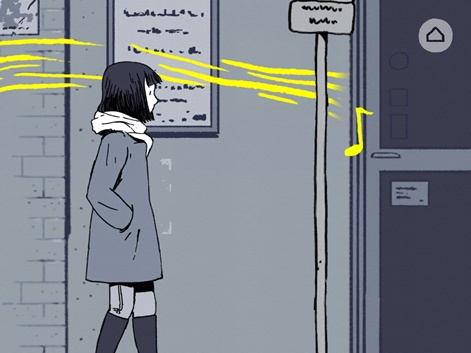
Offering a broader perspective of national support, Lancuba says there's no consistency in approach between the state and federal governments in Australia "as they’re entirely different entities", but praises positive moves by certain states.
“The Victorian government, through Creative Victoria and Film Victoria, are particularly supportive in pushing the Australian industry forward, having consistently partnered with the GDAA to support its projects and events, and supplying grants directly to game developers for a range of purposes," explains Lancuba.
“Screen Queensland has made tremendous strides over the last few years in supporting the games industry, with significant funding programs for development, marketing and travel.
“Screen Tasmania and Screen Canberra have also been supportive, helping fund small pilot projects and assisting local developers in attending international events.
“We have a way to go in getting the federal government to support the games industry consistently.
“That said, we have made significant relationship gains over the last few years in the federal space, and we are optimistic about the future.”
There is still a lot of work to be done in becoming healthier, whether that is through work practices or increasing the diversity of our teams.Ken Wong
The future
As for the future, Wong also believes that developers owe a duty of care to the teams they work with, be it from preventing internal crunch or providing support when someone becomes the target of harassment.
“I also think that there is still a lot of work to be done in becoming healthier, whether that is through work practices or increasing the diversity of our teams," says Wong.
"To be honest, also harassment in the industry; It’s still something that happens at Games Week as it’s always held a strong alcohol component.
"For a lot of people, that’s what they need to do to network, but it does blur the line between the professional space and being horrible.
"Every year a couple of people have a horrible experience and it’s bad as nobody in games should have to go through that, so it’s a constant conversation that we need to have.”
Looking at the global landscape, Wong also believes that developers need to delve into foreign markets to continue growing.
“I was on a panel on the first day of GCAP about finding your audience and the idea of that panel was that Australian studios are very entrepreneurial and inventive," recalls Wong.
"I think that's what they need to be better at, thinking about global markets and about how to really promote themselves on the global scene and thereby access audiences and therefore revenues.
"I think they are starting to become a lot more business savvy."
Image credit for Melissa Lancuba's headshot: Izzy Gramp
Full disclosure: Flights and accommodation were paid for by the organisers of Melbourne International Games Week. Our coverage remains neutral.

